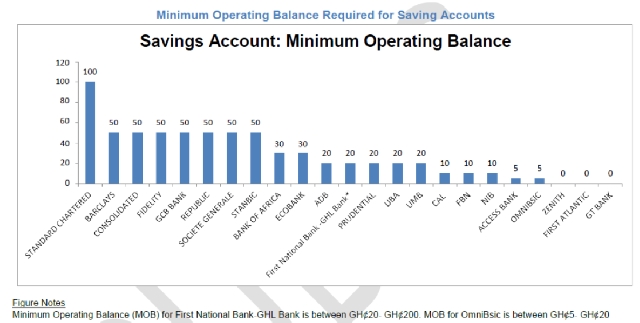Finance Ministry launches 3 policy initiatives; targets 85% savings rate by 2025
 Recent deposits rate in Ghana
Recent deposits rate in Ghana
The Ministry of Finance has launched three policy initiatives designed to deepen financial inclusion and accelerate the shift to digital payments.
This includes the National Financial Inclusion and Development Strategy, Digital Financial Services Policy and the Cash-Lite Roadmap.
The National Financial Inclusion and Development Strategy, which is developed in collaboration with the World Bank, aims at increasing financial inclusion from currently 58% to 85% by 2023, helping create economic opportunities and reducing poverty.
The Cash-Lite Roadmap is, however, designed in collaboration with the United Nations-based Better Than Cash Alliance.
It puts forward concrete steps to build an inclusive digital payments ecosystem. This includes better access to financial services, enabling regulation and oversight, and promoting consumer protection.
The Ministry has to this end established a Coordination Unit to drive effective stakeholder engagement on the implementation of key actions.
The launch conforms to the call by the Vice President Mahamudu Bawumia on financial institutions, telecommunications and fintech sectors to find innovative ways of turning mobile phones and the mobile money platforms into vehicles of economic emancipation for the many players in the large informal sector. He made this statement during the launch of QRPay and Proxypay by the Bank of Ghana in March 2020.
The launch also reinforces the position of the Minister of Finance, Ken Ofori-Atta to the effect that “Digital payments help drive transparency, accountability, efficiency, as well as greater women’s participation in the economy.”
Matthias Feldmann, Deputy Head of Mission / Head of Cooperation at the Swiss Embassy in Ghana noted that: “SECO has been committed to supporting the growth of digital financial services in Ghana because we are aware of the substantial positive impact it has on driving financial access for the poor, unleashing innovation and making the economy more resilient. We are very proud to have contributed to the development of the DFS Policy and look forward to working closely with our Ghanaian partners to implement its pillars. Congratulations Ghana!”
In the context of the COVID-19 pandemic, these policies reinforce the government’s unwavering commitment to digitizing the Ghanaian economy and providing the soft infrastructure that will enable the private sector, payment service providers and all other ecosystem players to innovate digital financial solutions in a conducive environment to the benefit of all Ghanaians.
Source: classfmonline.com
Trending Business

President Mahama swears in Matilda Asante-Asiedu as Second Deputy Governor of Bank of Ghana
02:58
Minister of Energy and Finance engage Karpower on legacy debt
17:21
CEMSE urges PUWU to support private sector involvement in ECG revenue mobilisation
14:19
COCOBOD halts Cocoa roads projects over GH¢4 billion debt – CEO
10:09
Free Zones Authority CEO visits Blue Skies juice factory in Dobro-Nsawam
03:57
NPA boss calls on IGP to seek collaboration to fight fuel diversions
03:15
Cedi appreciates significantly in April as global dollar weakness boosts emerging market currencies — MP
02:56
Zoomlion clarifies contract with YEA amid public concerns
00:30
GFZA CEO tours Tema Free Zone Enterprises to strengthen strategic partnerships
11:05
Finance Minister vows lasting economic stability and lower food prices in meeting with FABAG
08:46



